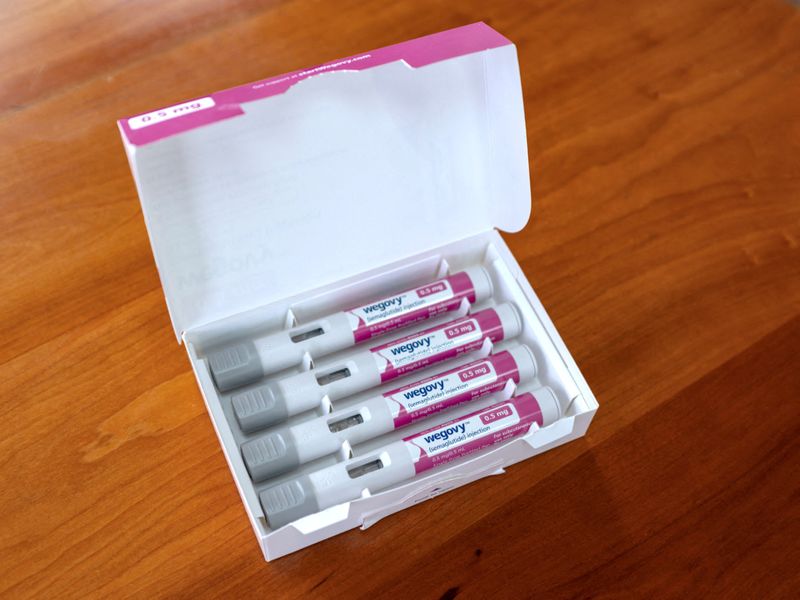(Reuters) - About one in eight adults have taken a drug belonging to the GLP-1 class of medications for weight loss and related conditions, a poll by Kaiser Family Foundation (KFF) showed on Friday.
The data also showed that 6% of those polled said they were currently using a GLP-1 drug, such as Novo Nordisk (NYSE:NVO)'s diabetes drug Ozempic or weight-loss treatment Wegovy, or Eli Lilly (NYSE:LLY)'s obesity drug Zepbound.
WHY IT'S IMPORTANT
The poll highlights the growing popularity of the medicines, even as Eli Lilly and Novo Nordisk race to increase supply of the treatments, which have faced intermittent shortages over the past year.
BY THE NUMBERS
Awareness about the treatments has also risen, the poll showed, with about one-third of adults now saying they have heard “a lot” about these drugs, up from 19% in July last year.
Still, affordability remains a challenge. Adults with annual household incomes of $90,000 or greater were more likely than those with lower household incomes to say they have heard “a lot” about these drugs, the poll showed.
About 54% of those who have taken GLP-1 drugs found it challenging to afford them, even with insurance.
WHAT'S NEXT
The companies are working to provide clinical evidence that their drugs have medical benefits beyond diabetes and weight loss, such as lowering the risk of stroke and heart attack, which could broaden insurance coverage.

Medicare prescription drug plans administered by private insurers, known as Part D, currently cannot cover drugs that are approved solely for obesity.
Six in ten polled adults said Medicare should cover the cost of these drugs when prescribed for weight loss.